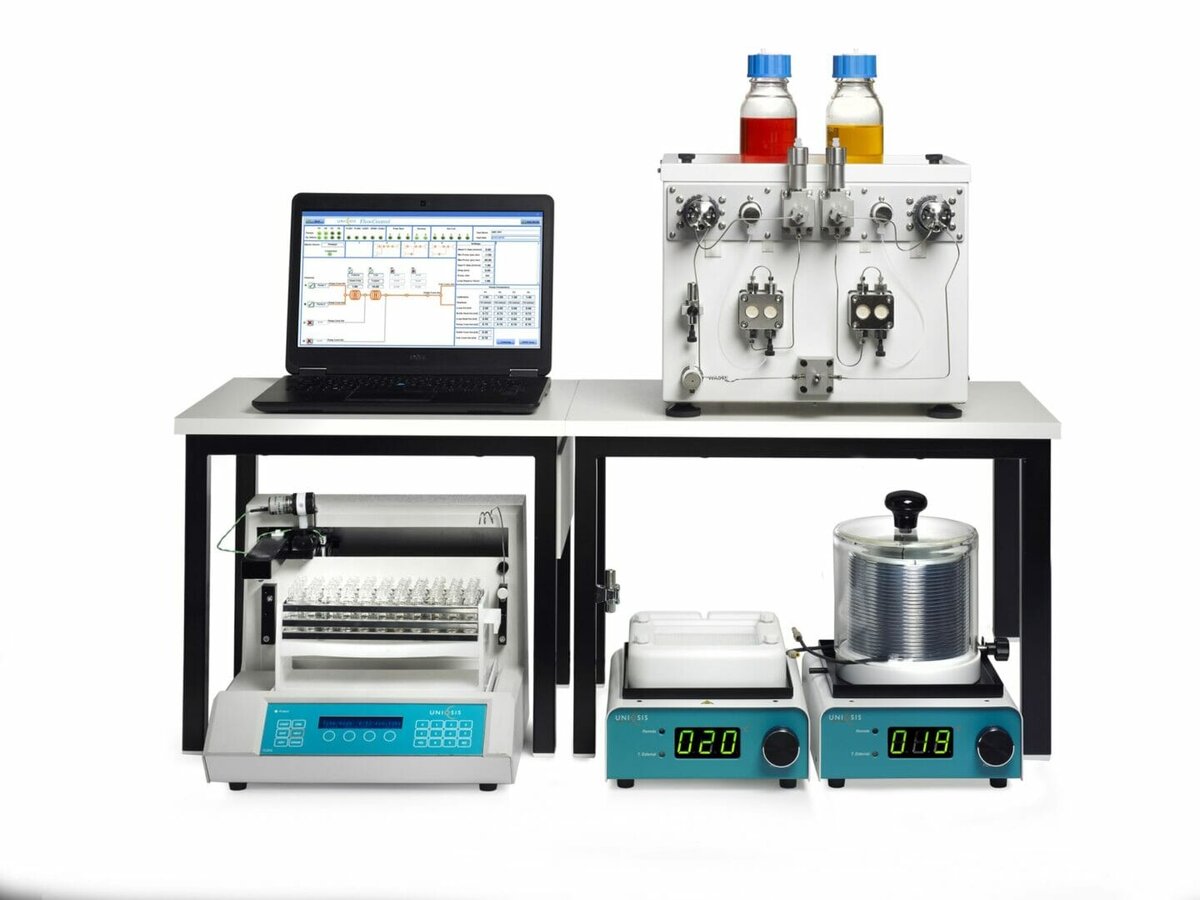Uniqsis reports researchers at the Helmholtz-Zentrum Institute of Membrane Research (Geesthacht, Germany) are using a FlowLab Plus flow chemistry system with glass static mixer reactor blocks to synthesise well defined polymers.
Synthesizing well defined polymers, with a narrow Molecular Weight distribution, has traditionally been achieved by using anionic polymerization methodologies. However, precise control of Molecular Weight achieved in this way is accompanied by very high sensitivity to impurities, temperature changes and fast polymerization rates, which leads to high demands on the process control along with challenging laboratory work. More recently radical polymerization methods such as the Reversible Addition-Fragmentation chain Transfer (RAFT) polymerization technique have been the focus of polymer research as alternative methods to synthesize well-defined polymers from a variety of monomers.
 In a new paper, published by the Helmholtz Institute, a model-assisted approach to develop and optimize a flow chemistry reaction system for the RAFT polymerization of MMA is presented. A reaction kinetics and a heat-transfer model were used together with in-line NMR spectroscopy to gain insight into the polymerization process in order to develop strategies for the process optimization. A screening method was used to investigate a broad range of different residence times in a single experiment. Adjustments were made to the composition of the reaction mixture, the temperature and the flow chemistry reactor setup.
In a new paper, published by the Helmholtz Institute, a model-assisted approach to develop and optimize a flow chemistry reaction system for the RAFT polymerization of MMA is presented. A reaction kinetics and a heat-transfer model were used together with in-line NMR spectroscopy to gain insight into the polymerization process in order to develop strategies for the process optimization. A screening method was used to investigate a broad range of different residence times in a single experiment. Adjustments were made to the composition of the reaction mixture, the temperature and the flow chemistry reactor setup.
Download the technical paper 67 (https://www.uniqsis.com/fcPublications.aspx#2115) to find out how to synthesize well-defined polymers.
Designed by chemists for chemists – FlowLab Plus™ is a versatile modular flow chemistry system built around the Uniqsis Binary Pump™ dual channel reagent delivery system. The system is configured to run both manual and automated flow chemistry reactions. The system may be configured with any combination of up to 4 individual reactor modules. A wide variety of configurations are possible.
To achieve highly reproducible flow chemistry scale-up the control of mixing and temperature is essential, particularly for polymerization reactions. Precision machined from inert borosilicate glass to withstand a wide temperature range – Glass Static Mixer (GSM) chip reactor blocks from Uniqsis are proven to produce a highly efficient, turbulent mixed reagent stream.
For further information please visit www.uniqsis.com or contact Uniqsis on +44-845-864-7747 / [email protected].
Uniqsis specialises in the design of meso-scale continuous flow chemistry systems for a wide range of applications in chemical and pharmaceutical research. The company’s aim is to make flow chemistry easily accessible to both novices and experienced users.








